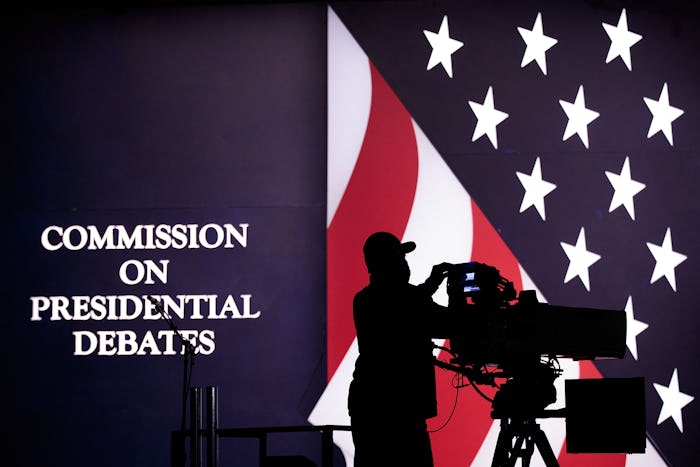News

Questions That Should Be Asked At The NBC Debate, Because It Will Be A Telling Face-Off
On Monday night, NBC's Lester Holt may be the one who's under the most pressure as he moderates the first presidential debate of 2016, because he's expected to keep order over and fact-check the sure-to-be heated proceedings between Democrat Hillary Clinton and Republican Donald Trump, while still maintaining the event's news and entertainment values. He's also — and most importantly — charged with asking the toughest, most revealing questions. No matter what, Holt is sure to fail by somebody's standards, but as long as he incorporates some variation of the main questions that should be asked at the NBC debate, according to the news media and likely voters, he'll have given voters valuable material to work with when deciding how to cast their ballots Nov. 8.
NBC recently announced the three broad topics that Holt will cover during the 90-minute debate: "American's Direction," "Achieving Prosperity," and "Securing America." They're vague categories, and probably deliberately so, because the network and Holt surely want to fine-tune their questions all the way up to the hours leading up to the debate, scheduled for 9 p.m. at Hofstra University in New York, and maybe even during it, as well. That's because, in addition to the candidates' respective scandals (see: Trump's super secret tax returns, the Clinton Foundation controversy), the best questions for the opening debate will focus on topical, timely issues that directly affect so many Americans in their daily lives, and those are ever-evolving — down to the minute.
Take, for example, the issue of race relations and policing in this country, a topic that's been a majorly important one for years, and is now once again at the forefront of the political consciousness after protests erupted in Charlotte, North Carolina, over the police shooting death of a black man named Keith Lamont Scott last week. As a voter, I don't want to hear stump speeches only about how each of the candidates would address the larger overarching problems here; I want to know about how they'd guide the nation through the nitty-gritty of the case: Should the officer who shot Scott be indicted? Did the police department make the right decision in releasing footage of the incident after previously pledging not to? What messages do they have for the protesters, and how would they foster American unity in the midst of such stark divisions?
It's also all but certain that the debate will drill down even further on the candidates' stances on immigration. Trump, of course, launched his campaign by proposing that the United States build a wall on its border with Mexico and later proposed that the country should ban all Muslims from immigrating here in order to combat terrorism. Clinton, by contrast, champions comprehensive immigration reform to make it easier for immigrants to stay in the country and even become citizens. Trump needs to answer why he thinks that barring an entire religious group from entering the United States would keep the country truly secure and explain the ins-and-outs of how that would work; Clinton should address how the United States could welcome people who may have entered illegally.
One question that's unique to this election cycle also falls squarely into the category of lines of inquiry determining "America's direction." That's the question of whether each of the candidates, if elected, would opt to uphold President Barack Obama's nomination of Judge Merrick Garland to the Supreme Court. After the conservative Justice Antonin Scalia died in February, leaving a vacancy that could swing the court either to the right or to the left, Senate Republicans are still refusing to hold a confirmation hearing. SCOTUS, of course, has determined the fate of many cases that have changed the fabric of American life, like 1973's Roe v. Wade, which in theory ensured a woman's right to choose, and the decision in 2015 to legalize same-sex marriage in all 50 states. Whether it's ultimately Garland who makes it one the bench or another pick — either more conservative or more liberal — answering this question will showcase the candidates' politically finesse, or lack thereof.
The feminist in me also wants to hear about how the candidates hope to continue Obama's legacy of fighting for equal pay, as well as the update on their positions on reproductive justice. I want to know why Clinton attended Trump's third wedding, and why he invited her. I want to hear about how each of them plan to keep Americans safe from Islamic extremism.
There is a lot of ground to cover, and it's probably too much to expect to get through during one night. Perhaps between Monday night and the second and third debates on Oct. 9 and 19, Americans can gain an even fuller view of how both Trump and Clinton would govern.